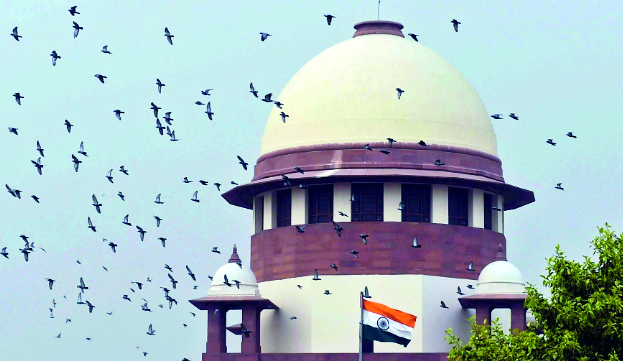Centre to brief SC on collegium’s resolutions on HC chief justices

New Delhi: In a significant development, the Centre on Thursday informed the Supreme Court that it would provide further details next week regarding the collegium’s recommendations on the appointment of chief justices in several high courts across India. The statement was made by Attorney General R Venkataramani before a bench headed by Chief Justice of India (CJI) D Y Chandrachud, as he sought an adjournment in a hearing concerning a public interest litigation (PIL) on the issue.
During the proceedings, Venkataramani requested that the plea, scheduled for a hearing on Friday, be postponed for a week to allow the Centre more time to submit the relevant information. “I will be providing some details about the collegium’s recommendations. Please list the plea (which is listed on Friday) after a week,” he informed the bench, which also included Justices J B Pardiwala and Manoj Misra.
However, the bench suggested that the request for adjournment could be made during Friday’s hearing, as the matter was already on the board. While discussing the case, Chief Justice Chandrachud also mentioned a contempt petition filed by the Jharkhand government against the Centre for its failure to appoint the Chief Justice in the Jharkhand High Court, despite the collegium’s recommendation.
The recommendation, made months ago, suggested the appointment of Justice M S Ramachandra Rao as the Chief Justice of the Jharkhand High Court.
Responding to this, the Attorney General remarked that he was unaware of the contempt petition. The Hemant Soren-led Jharkhand Mukti Morcha (JMM) government had earlier approached the apex court, expressing dissatisfaction with the Centre’s delay in clearing the appointment of Justice Rao.The ongoing issue of appointments has seen significant friction between the judiciary and the executive. Earlier, on September 13, the Attorney General had disclosed that the Centre had received “sensitive material,” which had contributed to the delay in implementing the collegium’s recommendations for the appointment of chief justices. Venkataramani noted that this information was confidential and could not be disclosed publicly, as it could harm the institution and the involved judges.
To address this, he proposed that these inputs be submitted in a sealed cover for the bench’s perusal, thereby maintaining the sensitive nature of the details.
The PIL, filed by advocate Harsh Vibhore Singhal, demands a clear timeline for the Centre to notify judicial appointments once recommended by the collegium.
It argues that the absence of a fixed time frame leads to arbitrary delays, undermining judicial independence and threatening constitutional order.
The plea advocates for a mechanism where the collegium’s recommendations, if not objected to within a set period, should automatically be deemed approved and notified by the government.
The case, which is set for further hearing on September 20, highlights the ongoing tension between the judiciary and the executive over judicial appointments, a critical issue for the functioning of India’s judicial system.
The Supreme Court collegium, led by CJI Chandrachud, had on July 11 recommended the appointment of chief justices for seven high courts—Delhi, Himachal Pradesh, Jammu and Kashmir and Ladakh, Kerala, Madhya Pradesh, Madras, and Meghalaya. However, these recommendations remain pending with the Centre. Subsequently, on July 17, the collegium amended its earlier resolution concerning the appointment of chief justices for the high courts of Madhya Pradesh, Himachal Pradesh, and Jammu and Kashmir and Ladakh, potentially in response to additional inputs from the Centre.
Speculation has arisen that the Centre’s sharing of sensitive information led to the alterations in the collegium’s original recommendations.



